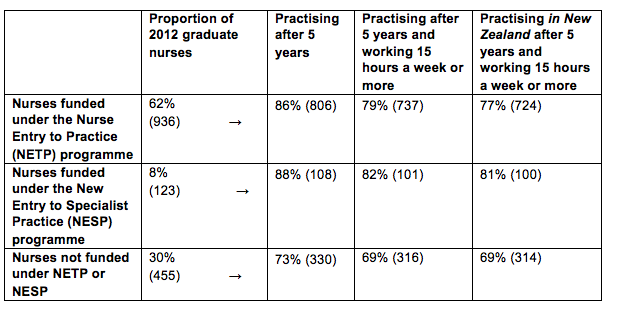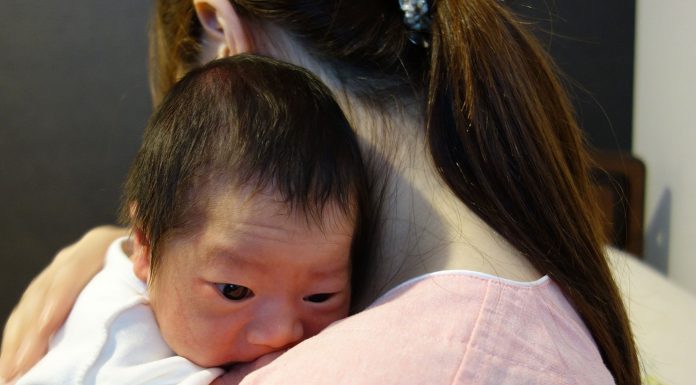New graduate nurses are much more likely to still be nursing five years after graduating if they start their career in a new grad programme, just released analysis confirms.
This backs ongoing calls by the national nursing organisations for 100 per cent placement of new graduates in new graduate programmes – a goal they had set to be met by this year.
The Ministry of Health analysis found that 86 per cent (806) of the 2012 nurse graduates who gained a place in a government-subsidised NETP (Nurse Entry to Practice) programmes were still in nursing five years on.
The proportion was even higher for mental health nurses with 88 per cent of the 123 new grads signed up to a specialist mental health NESP (New Entry to Specialist Practice) Programme) still having valid annual practising certificates (APC) five years later.
In comparison just 73 per cent (330) of the 455 new graduates who failed to gain a place in a NETP or NESP programme still had an APC in 2017. Overall 1244 (82%) of the 1514 nurse graduates registered in 2012 were still in nursing five years later. (See table below)
Chief Nurse Jane O’Malley said the higher proportion of new graduates still nursing if they had started their careers in a funded new graduate programme was “telling” and showed the importance of the programmes for nursing retention.
In 2013 the National Nursing Organisations – including the New Zealand Nurses Organisation and College of Nurses Aotearoa – called for full utilisation of all NETP funding to support the goal of 100 per cent employment of new graduates by 2018. Government funding is potentially available to subsidise 1300 NETP and about 125 NESP places but lack of vacancies and tight budgets – particularly at district health boards – means only all the NESP funding is fully utilised.
New graduate nurses employed under a year-long NETP programme must receive clinical preceptor support for the duration of the programme and the equivalent of 12 study days with the aim of new nurses starting their career “well supported, safe, skilled and confident in their clinical practice”.
The analysis of the 2012 new graduate cohort – that uses data from the ACE new graduate placement and Nursing Council of New Zealand annual practising certificate data – also showed the vast majority of the new nurses still holding APCs were practising for more than 15 hours a week. (NB nurses practising for less than 15 hours a week but still with valid APCs may be on parental leave, travelling overseas or between jobs.)
The APC data indicated that just over a dozen nurses with valid New Zealand APCs were currently practising overseas. (Retaining an NZ APC indicates that they may only be working overseas for a limited amount of time and/or wanted to retain the option of returning to New Zealand to nurse.)























